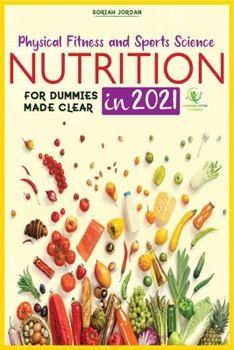Sports Science and Fitness Nutrition: Made Clear in 2021
2020 has been an unprecedented, stressful and widely chaotic year for nearly every individual on the planet. When it comes to food and nutrition, national surveys have shown that COVID-19 has directly impacted the eating habits and the nutritional status of many people around the world. With national stay-at-home orders, people began cooking at home more often and rediscovered the joy (and frustration) of creating homemade sourdough and cooking homemade meals for themselves and their family. For others, closure of gyms and fitness facilities resulted in a surge of home workouts, while others coined the term "the COVID-19" referring to a typical weight-gain of 19 pounds as a result of decreased physical activity. Ultimately, the combination of these events over the past year means that health, nutrition and sustainable eating habits are some (of many) issues at the front of minds of individuals.Now, in 2021, the interest in nutrition and healthy eating has not plateaued but continues to surge as new research emerges demonstrating the importance of underlying metabolic health and its relationship to health and disease. As diet is the second greatest behaviour risk for developing chronic diseases (after smoking), undesirable changes in diet can put more individuals at risk of developing chronic diseases in the future. The good news? Granted sufficient access to food, it is in our power to change our dietary habits for the better. However, with the rise of scientific misinformation, including unverified blog posts, anecdotal stories or social media posts by who knows what, it can be confusing to know what the best way is to eat. Different healthy eating, diet and nutritional advice is everywhere and is often contradicting. Food can be complicated, and it's because we do not simply eat to fulfill the biological requirements of the human body. While food provides energy and nutrients, it also provides a source of culture, a sense of belonging, a reason to gather and socialize, and a source of delicious, fulfilling pleasure. From a scientific point of view, our biology supports these associations as our appetite is regulated by not one, but two systems: physiological hunger and hedonic hunger. Physiological hunger occurs in the presence of simply not eating enough food, where signals from our brain and our digestive system will produce the signs and symptoms associated with hunger to ensure food intake is on the horizon to survive. However, even when calorie and nutrient needs are met hedonic hunger can override physiological signals. This means that the associations we make between food and pleasure, such as a chocolate cake, can interfere with physiological signals of fullness allowing us to overeat. Ultimately, the overlapping of these pathways is another reason why we have a complicated relationship with food, strengthening the notion that we are not simply wired to consume food solely to replenish our energy and nutrient needs. Is there one optimal, one-size fits all approach to eating? In short, the answer is no. Science consistently shows that there is not one best diet for human consumption, but there are certainly healthful foods that contribute to an overall healthy dietary pattern.This means that in this book, you will learn the basics of nutrition science based on the most recent research to ensure that you have the knowledge you need to make better dietary decisions, for good, in 2021.Let's get started.
Format:Paperback
Language:English
ISBN:B08Y5KRWV3
ISBN13:9798710345511
Release Date:March 2021
Publisher:Independently Published
Length:112 Pages
Weight:0.39 lbs.
Dimensions:0.3" x 6.0" x 9.0"
Customer Reviews
0 rating





